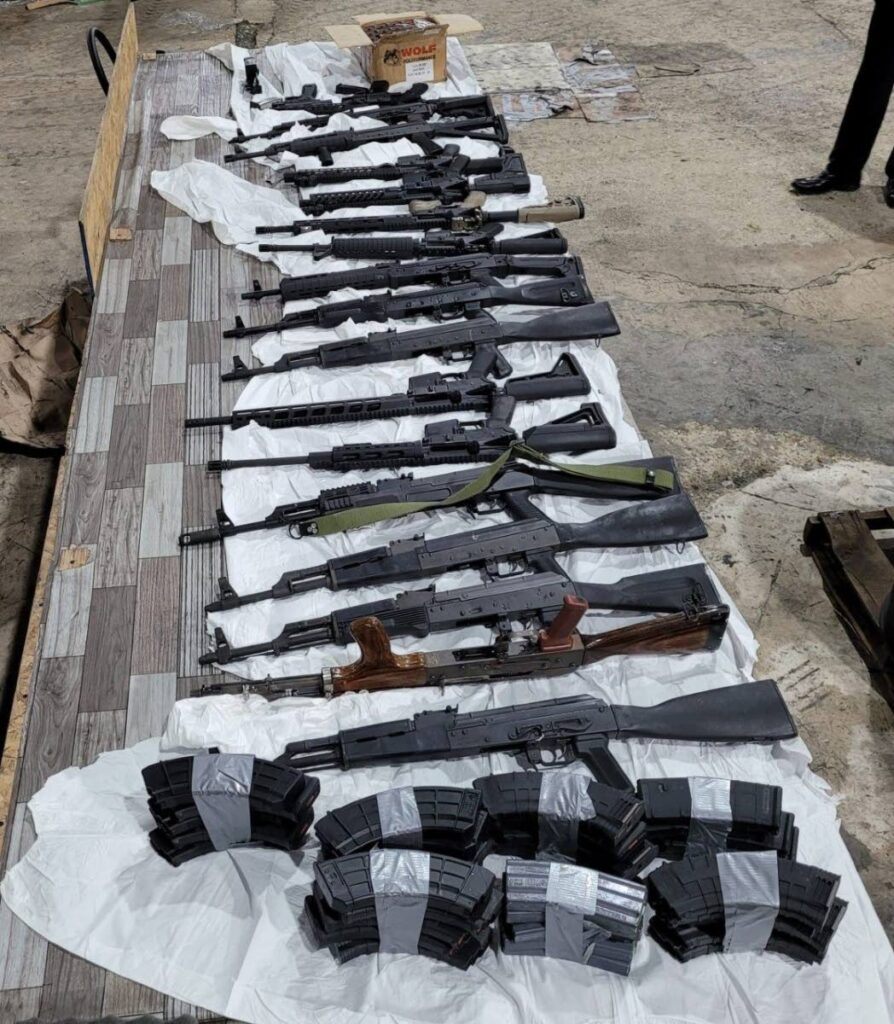Get rid of seized guns

It’s beyond absurd that guns captured from criminals by the police are making their way back into the hands of gang members.
But the 2020 annual report of the Strategic Services Agency (SSA) laid in the Senate on Tuesday raises concerns that these weapons – including high-powered automatic rifles – are somehow slipping through the hands of police or, worse, being rented to criminals.
If true, the implications of these assertions are deeply disturbing: there may, for instance, be a network of police intertwined with criminals, seizing guns only to return them to the wrong hands, for profit.
The problem requires careful consideration, but at least one aspect may have a relatively simple solution.
Captured guns sometimes form part of the evidence in cases ranging from accidental wounding to cold-blooded murder.
The SSA report urges a review of chain-of-custody measures to secure these guns and to hold police officers responsible for their safekeeping. The public should be assured that after guns are proudly offered up by the police service in artful displays for news photos, they remain no threat to civil society.
Former CoP Gary Griffith said he had no knowledge of the SSA’s claims, but Paul Nahous, who oversaw firearms use under Mr Griffith’s direction, found during an audit of the safekeeping of weapons that the property rooms housing these guns were “a total mess.” That simply isn’t good enough.
From the point that a weapon is taken off the streets until it is secured in a property-keeper’s custody in lockdown – and thereafter – every weapon and piece of ammunition should have a recorded owner at every point. A verifiable, accurate and easily-traced chain of custody is crucial for effective evidence-presentation in a criminal case.
That this doesn’t happen automatically was reinforced by the discovery of seven guns, ammunition and drugs in the ceiling of the St Joseph Police Station in 2009. Officers were questioned and reassigned. The matter was shelved.
In the case of weapons being held as evidence, there should be greater clarity from the Judiciary about what exactly is required. Given the length of time it takes for cases to work their way through the courts, the Judiciary should consider weapons management an urgent matter.
Is more needed from a captured gun than a sample fired bullet and the rifling of the barrel to deliver decisive evidence in a court case? Beyond that, there is no good reason for guns that have been seized and are not required as evidence to be kept in an operational state.
Once measures have been put in place to acknowledge that fact, the CoP should move with dispatch to destroy “to established international standards through smelting, crushing or torch cutting” every gun not logged for evidence use currently in the custody of property-keepers – and reduce them to scrap metal.


Comments
"Get rid of seized guns"